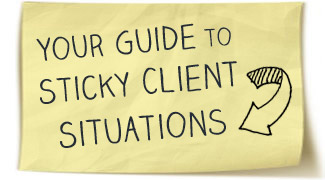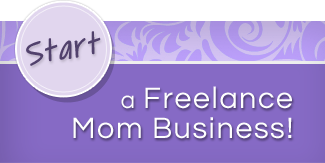
Has anyone ever said something that sounds like this:
“Your price is a little too high and I’d like a discount.”
In this article, I outline two approaches for responding to this comment. One of the approaches even has the potential for you to have a much better outcome than you originally anticipated.
Curious?
First, giving discounts in the right way may well be the most appropriate thing to do. Conversely, giving a discount in the wrong way can not only lose you a client, but could lose you all possible future business from a potential client.
What Might Happen When You Give an Immediate Discount
Just suppose you say “yes” and immediately give a discount. What do you think this potential client now thinks?
- You seem desperate for the business.
- I wonder how far you will lower your price.
- Mmmm, maybe I should ask for an even bigger discount than I originally planned.
- The price you originally offered was not the “real price.” Are you trying to trick me? Can I really trust you?
- You don’t set a very high value on your own services if you are prepared to discount so quickly.
- You agree your price is too high. This is a problem.
- Next time I come to buy anything from you, I will ask for a discount again.
The problem with just giving a discount by itself is that you have given something away and have asked for absolutely nothing in return.
You’ve just created a win/lose situation. The potential client has “won” a discount amount and you have “lost” it.
Also, just because you’ve agreed to a discount doesn’t mean you’ll get the sale, in fact, quite the opposite. You may have damaged your credibility to the extent this person no longer trusts you or wants to do business with you.
Just suppose now that instead of giving the discount you ask them:
“Can you help me understand why you want or need a discount?”
The response will help you understand what is behind the request. Then, depending on how they respond, you could use one of two approaches.
Approach One – Take Out Something of Value
This approach is useful if money really is an issue.
Instead of giving a discount, you lower the price by taking out something of value.
This is a win/win choice.
They get the lower price and you still maintain your price for a certain value bundle.
You could say, for example, “If price is more of an issue for you, then I suggest that we take out X product/service.” (Suggest taking something out of high-perceived value). The person needs to see that in order to get the discount they have to give up some of the value from your offer.
Alternatively, you could ask them for suggestions for what they’d like to take out. Or maybe offer a couple of suggestions.
Your potential clients need to understand that there is a price for reducing the price!
Approach Two – Receive Something of Value
You agree to give a discount provided they give you something in return.
In exchange for a discount you ask them to give you something which is important or of value to you. That’s another win/win choice.
For example, suppose you offer consulting at $200 an hour, and someone asks for a discount. You could say, “I am prepared to reduce my rate from $200 to $180 an hour if you agree to an initial 100 hours of consulting.”
The client will receive the discount and you have received a commitment for 100 hours.
Another example is giving a discount based on the client buying from you by a certain date, which is an important date for you (e.g. tax year end). The important thing is to ensure that whatever you do, it is a win/win situation and that the person is perfectly clear as to why you are prepared to give the discount.
I was once involved in a very large deal worth several million dollars. As usual, I was asked for a sizable discount. I agreed to the discount provided the client made a commitment to purchase some other services at the same time (which they needed).
As a result of being asked for a discount and the way I packaged my response, I ended up with much more business, double in fact!
I hope you’re starting to see that when people ask for a discount, it creates a great opportunity for you.
“Don’t sell yourself short. No one will value you. Set a fair price for you, your book, your services, whatever it is that you have to offer. Most of us set way too low a price. Put it a little higher than you would normally be inclined to do. The worst that can happen is someone will come along and steal it.” – John Kremer, 1001 Ways to Market Your Books: For Authors and Publishers
How have you dealt with discounting your services and/or products?
Author: Tessa Stowe and Lisa Stein





